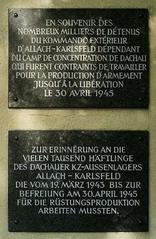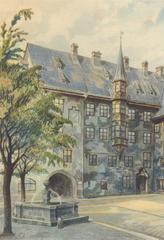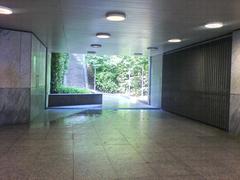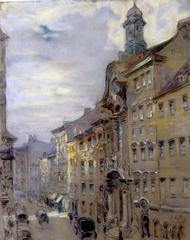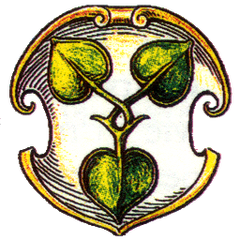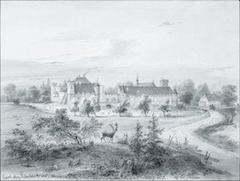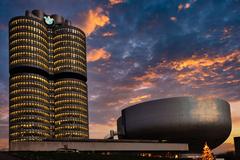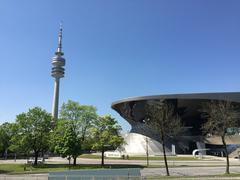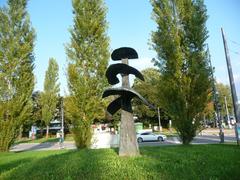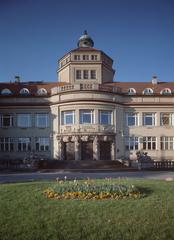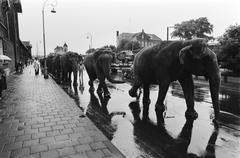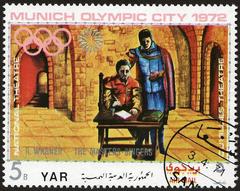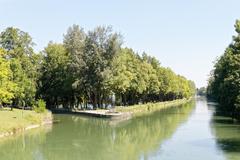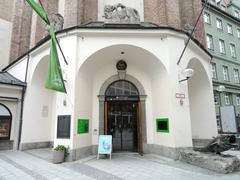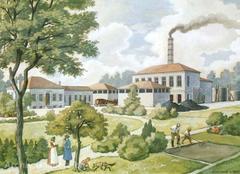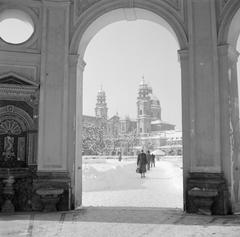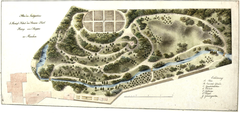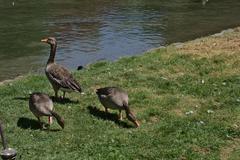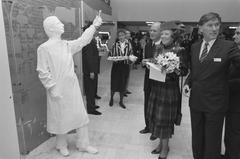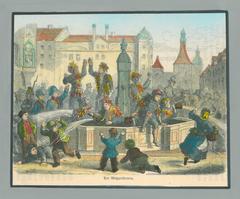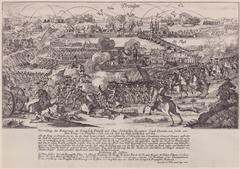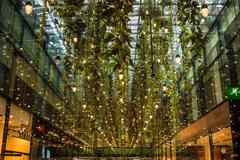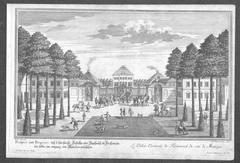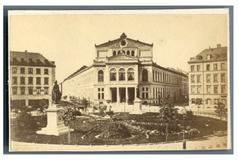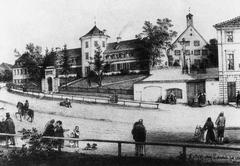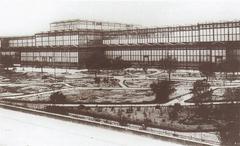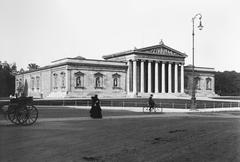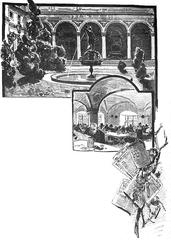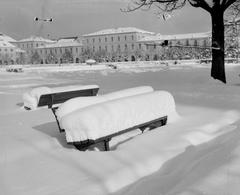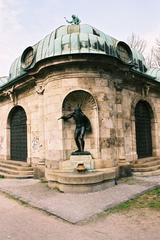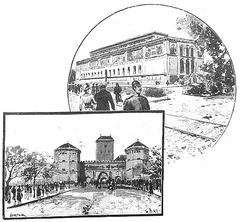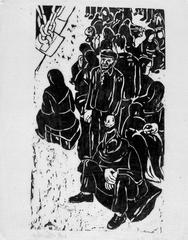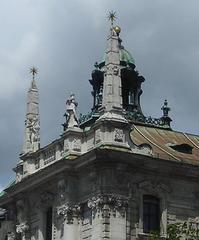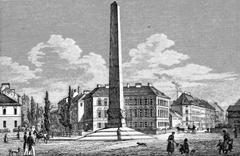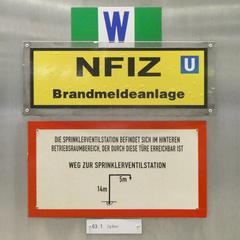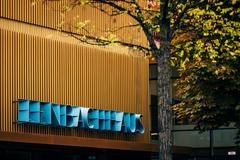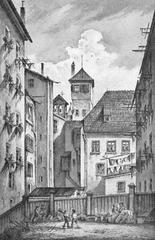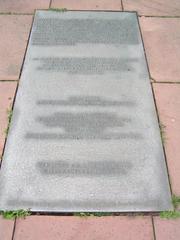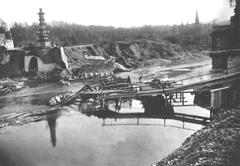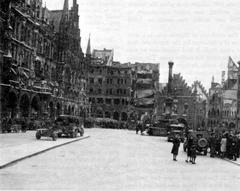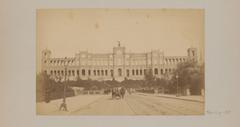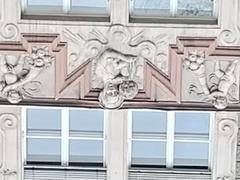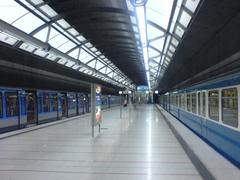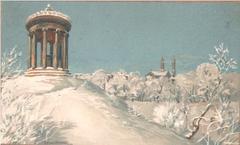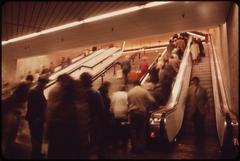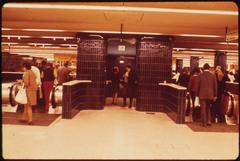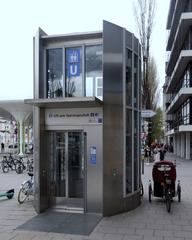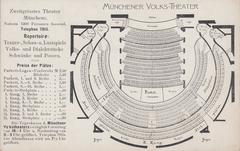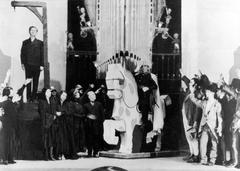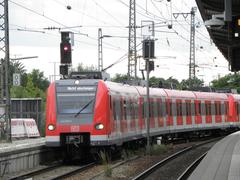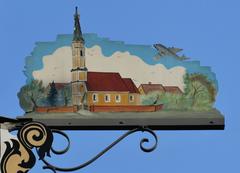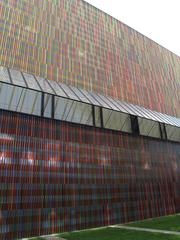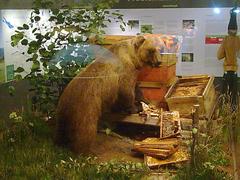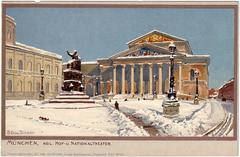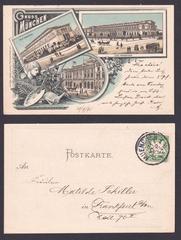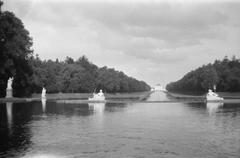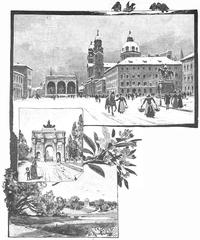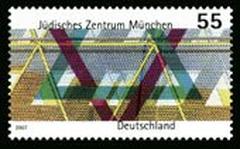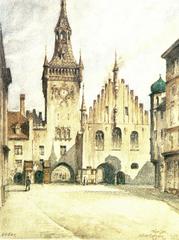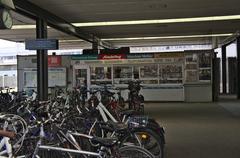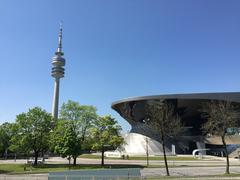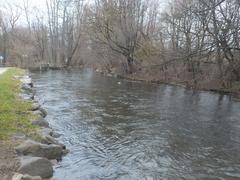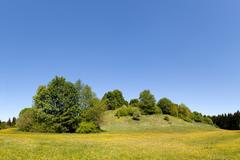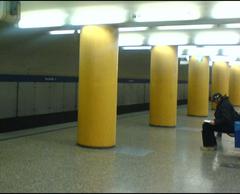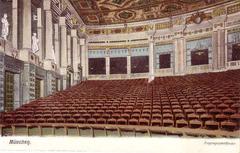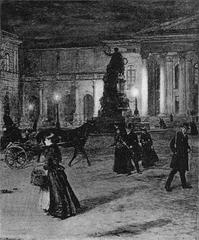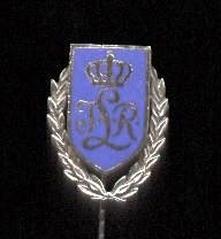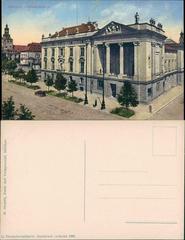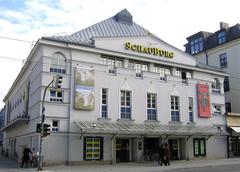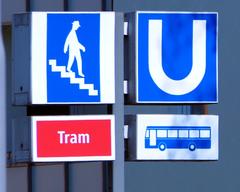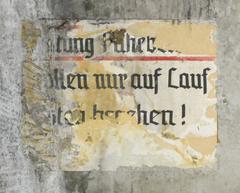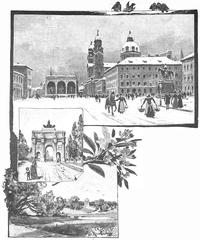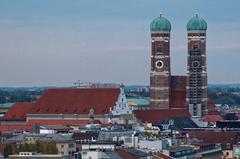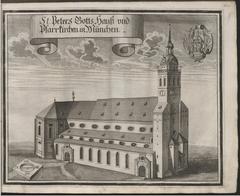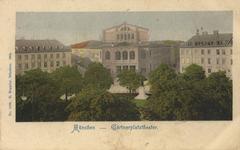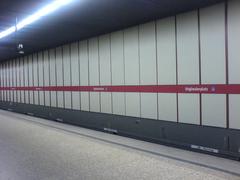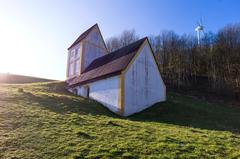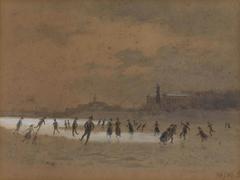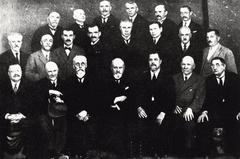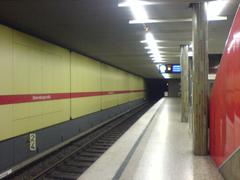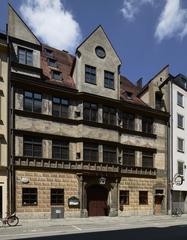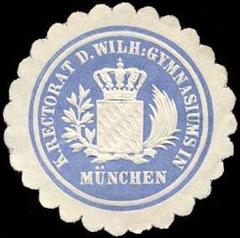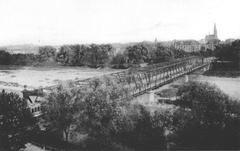
Floßkanal Munich: Visiting Hours, Tickets, and Historical Sites Guide
Date: 04/07/2025
Introduction: The Floßkanal—Where History, Culture, and Recreation Meet
Nestled along the scenic Isar River in Munich, the Floßkanal (Raft Canal) is a remarkable example of the city’s historical connection with its waterways. Constructed at the end of the 19th century, this canal originally enabled timber and goods to bypass the Isar’s hazardous stretches, fueling Munich’s industrial growth. Today, the Floßkanal is a thriving destination blending historical significance, outdoor adventure, and authentic Bavarian culture. From traditional raft journeys and nature walks to river surfing and local festivals, the Floßkanal offers a diverse array of experiences for visitors of all ages (munich.travel; bavaria.travel; livingnomads.com).
Table of Contents
- Introduction
- The History and Engineering of the Floßkanal
- Cultural and Economic Significance
- Visiting the Floßkanal: Essential Information
- Practical Visitor Tips
- Frequently Asked Questions (FAQ)
- Conclusion and Next Steps
- References
The History and Engineering of the Floßkanal
Origins and Purpose
Constructed in 1899, the Floßkanal was engineered to facilitate the safe transport of timber and goods from the Bavarian Alps into Munich, bypassing the Isar’s dangerous rapids. Timber rafting, or “Flößerei,” was a centuries-old practice vital to Munich’s growth, supplying the city with building materials and fuel (munich.travel; bavaria.travel).
Design and Construction
The canal extends about 12 kilometers, running from Großhesselohe to Thalkirchen. It features locks, weirs, and reinforced banks, reflecting the advanced engineering of its era. The canal’s width and depth were specifically designed for large timber rafts, some reaching up to 18 meters in length (munich.travel).
Evolution and Modern Role
With the arrival of rail transport in the early 20th century, commercial rafting declined, but the Floßkanal reinvented itself as a recreational hub. Today, it draws thousands of tourists each year for rafting tours and outdoor activities, while serving as a vital green corridor for local wildlife (livingnomads.com).
Cultural and Economic Significance
Preserving Tradition
Rafting on the Floßkanal is recognized as an Intangible Cultural Heritage by UNESCO, highlighting its role in Bavarian identity. Modern raft tours maintain these traditions with live folk music, regional cuisine, and traditional costumes (bavaria.travel).
Tourism and Community
Today’s raft journeys are a major attraction, especially from May to September, supporting the local economy through tourism, hospitality, and events. The Floßkanal is also a focal point for local celebrations and seasonal festivals, fostering community spirit (exploresaga.com).
Visiting the Floßkanal: Essential Information
Location and Access
The Floßkanal runs through southern Munich, parallel to the Isar River, connecting Großhesselohe with Thalkirchen. It’s accessible by:
- Public Transport: S-Bahn line S7 (Großhesselohe Isartalbahnhof) and U-Bahn U3 (Thalkirchen, Tierpark). Both stations are a short walk from the canal (munich.travel).
- Cycling: Dedicated paths along the Isar connect to the canal, making it ideal for cyclists.
- Car: Limited parking is available near Thalkirchen Flosslände; public transport is recommended during busy periods.
Visiting Hours
- Canal and Paths: Open year-round, typically accessible from dawn to dusk.
- Rafting Season: May to mid-September, with most tours running 10:00 AM–6:00 PM.
- Surfing at Flosslände: May to September, afternoons and evenings, depending on water conditions.
Ticketing and Guided Tours
- Rafting Tours: Advance booking is essential, especially for peak dates. Tickets range from €40–€60 per person for standard tours, and up to €150 for full-day experiences with meals and music. Book via local operators or official tourism sites (destination-munich.com).
- Surfing: Free access at the Flosslände wave, but bring your own equipment.
- Walking and Cycling: Free, no tickets required.
Accessibility
- Most main pathways are flat and wheelchair-friendly; some grassy or gravel areas may be uneven, especially after rain.
- Accessible restrooms are available near Flosslände and Thalkirchen Campingplatz (Campingplatz Thalkirchen).
Activities and Events
Rafting Experiences
Traditional wooden raft trips—complete with live Bavarian music, food, and drinks—travel from Wolfratshausen to Thalkirchen, lasting 6–7 hours. Guided by skilled raftmen, these tours offer a blend of history and entertainment.
Surfing at Flosslände
The world’s oldest river surf wave at the Flosslände is open to all levels, with local clubs offering training and competitions.
Kayaking, Canoeing, and Swimming
The canal’s calm waters are perfect for kayaking and canoeing (rentals available via local clubs). Swimming and sunbathing are popular on the banks, though there are no lifeguards.
Walking, Running, and Cycling
Well-maintained paths make the Floßkanal a favorite for walking, jogging, and cycling. Enjoy scenic routes through green spaces and along the Isar.
Picnic and Beer Gardens
Picnic spots abound, and nearby beer gardens like Waldwirtschaft Großhesselohe serve Bavarian specialties and live music (themunichguide.de).
Events and Festivals
Seasonal celebrations, particularly at the start and end of rafting season, feature live music, food stalls, and cultural displays.
Nearby Attractions
- Tierpark Hellabrunn: Munich’s renowned zoo, across the Isar from the Floßkanal.
- Isar Riverbanks: Scenic paths for additional cycling and walking.
- English Garden: Accessible via bike, home to the famous Eisbach wave (Couple of Journeys).
Practical Visitor Tips
- Best Time to Visit: May–September for rafting and festivals; April–October for mild weather and fewer crowds (xplrverse.com).
- What to Bring: Comfortable shoes, weather-appropriate clothing, sun protection, water, picnic supplies, and cash for small purchases.
- Safety: Swimming is at your own risk; no lifeguards. Dogs must be leashed. Barbecues and fires are prohibited.
- Accessibility: Paths are stroller- and wheelchair-friendly, but verify conditions after rain.
Frequently Asked Questions (FAQ)
Q: What are the Floßkanal visiting hours?
A: The public canal and paths are open year-round from dawn to dusk. Raft tours run May–September, 10:00 AM–6:00 PM.
Q: How do I book tickets for rafting tours?
A: Book online through official tourism sites or local operators. Advance booking is highly recommended.
Q: Is the Floßkanal accessible for disabled visitors?
A: Most main paths are accessible, and public restrooms with accessible facilities are available.
Q: Can I swim in the Floßkanal?
A: Swimming is not permitted in the canal itself, but the adjacent Isar River has popular bathing areas.
Q: Are there parking facilities?
A: Limited parking is available near Thalkirchen Flosslände. Public transport is advised, especially on weekends.
Conclusion and Next Steps
The Floßkanal is a living testament to Munich’s heritage—an inviting blend of history, nature, and vibrant Bavarian culture. Whether you’re rafting, cycling, attending a festival, or simply relaxing by the water, the Floßkanal promises a rewarding experience for every traveler. Plan your visit by checking seasonal hours, booking tickets in advance for raft tours, and exploring nearby attractions for a complete Munich adventure.
Ready to discover the Floßkanal?
Download the Audiala app for guided audio tours, local tips, and exclusive visitor offers. Follow us on social media for updates on events, new attractions, and insider recommendations.
References
- munich.travel
- bavaria.travel
- livingnomads.com
- Munich Travel: Flosslände
- Campingplatz Thalkirchen
- themunichguide.de
- destination-munich.com
- exploresaga.com
- Couple of Journeys
- travellersworldwide.com


